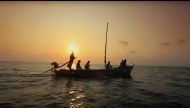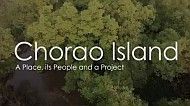Participatory Management for Sustainable Use and Conservation of Wetland, Coastal and Marine Protected Areas
The project had the objective of improved conservation and sustainable use of the marine biological diversity in the pilot protected areas while taking into account the economic well-being of the local population. The project focused on three main approaches: 1) Development of participatory processes for the conservation and the management of natural resources and their implementation in designated areas along the Indian coast. 2) Facilitate capacity development of key sectors and stakeholders crucial for management of coastal and marine biodiversity and protected areas. The measures were implemented at national and state level together with partners to ensure their sustainability. 3) Facilitate a dedicated information, education and communication program to sensitize key stakeholders for conservation of coastal and marine biodiversity and ecosystem services.
- Countries
- India
- IKI funding
- 9,600,000.00 €
- Duration
- 08/2012 till 12/2017
- Status
- completed
- Implementing organisation
- Deutsche Gesellschaft für Internationale Zusammenarbeit (GIZ) GmbH
- Political Partner
-
- Ministry of Environment, Forest and Climate Change (MoEFCC) - India
- Implementing Partner
-
- Ministry of Environment, Forest and Climate Change (MoEFCC) - India
State of implementation/results
- Project completed.
- The CMPA project was implemented at seven sites in four states - Goa, Gujarat, Maharashtra and Tamil Nadu. The project worked towards the development and demonstration of implementable models for participatory conservation and management of biodiversity which included:
- The formation of Biodiversity Management Committees at a local level in order to document traditional knowledge in the form of People’s Biodiversity Registers (PBRs), which eventually help in the establishment of Biodiversity Heritage Sites.
- It developed curricula and training material for the present and future officers, both senior and field staff of the forest departments dealing with the protection of coastal and marine biodiversity. This was achieved in cooperation with Wildlife Institute of India (WII), Indira Gandhi National Forest Academy (IGNFA) and the Department of Forest Education (DFE).
- Devised a dedicated information, education and communication programme at all project sites involving local partners, stakeholders and civil society for enhanced knowledge and sensitization on conservation of biodiversity in coastal and marine areas.
- Set up a state of the art interpretation cum education centers for The Khijadiya Bird Sanctuary in Gujarat, the Dr Salim Ali Bird Sanctuary in Goa and the Velas Dabhol Coast in Maharashtra with the aim to create awareness on coastal biodiversity.
- Supporting research projects and disseminating information on a range of biodiversity issues of national importance, assessment of marine national parks, importance and management of seagrass, conservation of marine mammals in Indian seas and participatory management of diverse estuaries.
- Development of training material for practicing journalists, graduate and post-graduate media students, aimed at integrating issues relevant to coastal and marine biodiversity and protected area management into existing curricula.
- The CMPA project supported the Indian partners via capacity building and awareness raising in achieving the SDG 14 to sustainably manage and protect marine and coastal ecosystems. During the last five years the CMPA project achieved major milestones to improve the conservation and sustainable use of the marine biological diversity .The experiences and best practices of the project serve as a learning experience for the Indian Ministry of Environment, Forest and Climate Change on how to achieve the larger goal of saving India’s coasts from harm.
Latest Update:
04/2025
Project relations
Legend:
The link has been copied to the clipboard






















